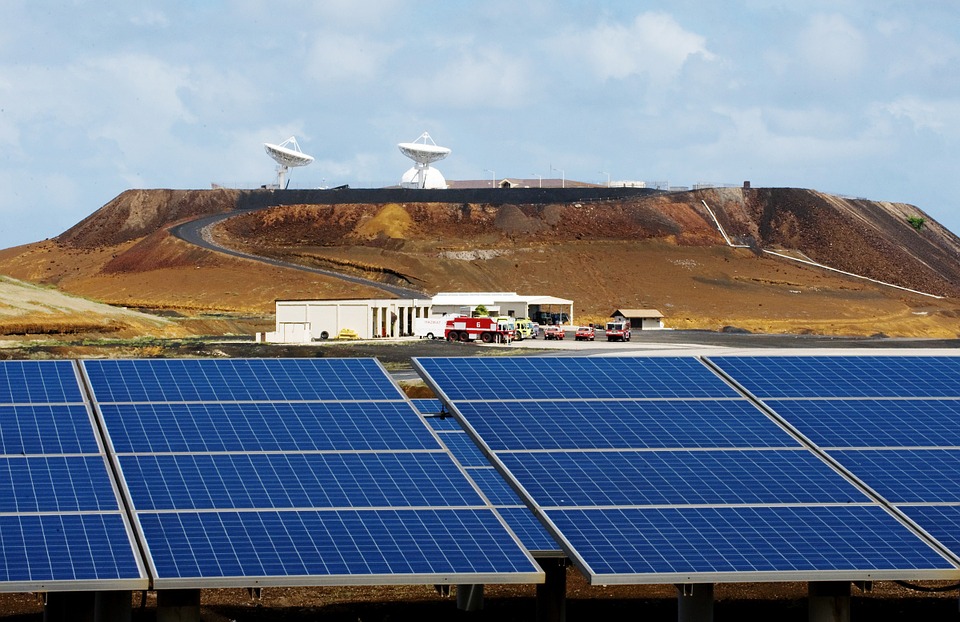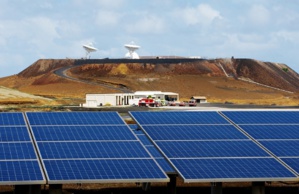Dailycsr.com – 27 December 2016 – In a partnership between Tesla and SolarCity, the duo completed a project among others, wherein the power was generated by SolarCity while “powerpack” storage helped the “small island of Ta’u in American Samoa” get rid of being dependent on a “diesel generator grid”, resulting in a “power problem” solution.
The practice of relying on diesel is quite common among the “island communities” as they burn fossil fuel for maintaining an “electrical grid. However, shipping the fuel along with its “considerable cost” combine to create various issues that causes “temporary blackouts”. On the other hand, the cost of solar powered electricity can be recovered over “a long period of time when grid power is convenient and readily available”.
Nevertheless, the “financial benefits” needs to cover up at a faster pace, especially given the scenario of bearing the cost of shipping and burning diesel for generating electricity. In this background, the combined grid project of SolarCity and Tesla created an array of solar panels which consisted of “over 5,300 panels” with the capacity to produce “1.4 megawatts of solar capacity”.
From this point, Tesla’s “Powerpack commercial battery storage” took on as it provided a “6 megawatt hours of reserve capability across 60 Powerpacks”. As a result, the micro grid is capable of supplying three days of power to the island of Ta’u, containing six hundred residents. Furthermore, the entire system only takes seven hours of “solid sunlight exposure” to fully recharge itself.
According to the report of techcrunch.com:
“Start to finish, Tesla and SolarCity’s Ta’u microgrid project came together within a year. The project was funded by the EPA, the Department of the Interior and the American Samoa Economic Development Authority. Tesla is clearly hoping this acts as an example to other potential customers, and it also shows at commercial scale why Musk believes the solar battery portion of the business will one day exceed the market for Teslas – there are plenty of spots where reliable, independent power holds more appeal than an electric vehicle”.
References:
techcrunch.com
The practice of relying on diesel is quite common among the “island communities” as they burn fossil fuel for maintaining an “electrical grid. However, shipping the fuel along with its “considerable cost” combine to create various issues that causes “temporary blackouts”. On the other hand, the cost of solar powered electricity can be recovered over “a long period of time when grid power is convenient and readily available”.
Nevertheless, the “financial benefits” needs to cover up at a faster pace, especially given the scenario of bearing the cost of shipping and burning diesel for generating electricity. In this background, the combined grid project of SolarCity and Tesla created an array of solar panels which consisted of “over 5,300 panels” with the capacity to produce “1.4 megawatts of solar capacity”.
From this point, Tesla’s “Powerpack commercial battery storage” took on as it provided a “6 megawatt hours of reserve capability across 60 Powerpacks”. As a result, the micro grid is capable of supplying three days of power to the island of Ta’u, containing six hundred residents. Furthermore, the entire system only takes seven hours of “solid sunlight exposure” to fully recharge itself.
According to the report of techcrunch.com:
“Start to finish, Tesla and SolarCity’s Ta’u microgrid project came together within a year. The project was funded by the EPA, the Department of the Interior and the American Samoa Economic Development Authority. Tesla is clearly hoping this acts as an example to other potential customers, and it also shows at commercial scale why Musk believes the solar battery portion of the business will one day exceed the market for Teslas – there are plenty of spots where reliable, independent power holds more appeal than an electric vehicle”.
References:
techcrunch.com


 SolarCity & Tesla’s Partnership Makes An Island Self-Sufficient With Solar Power Just Within A Year
SolarCity & Tesla’s Partnership Makes An Island Self-Sufficient With Solar Power Just Within A Year





 Companies
Companies